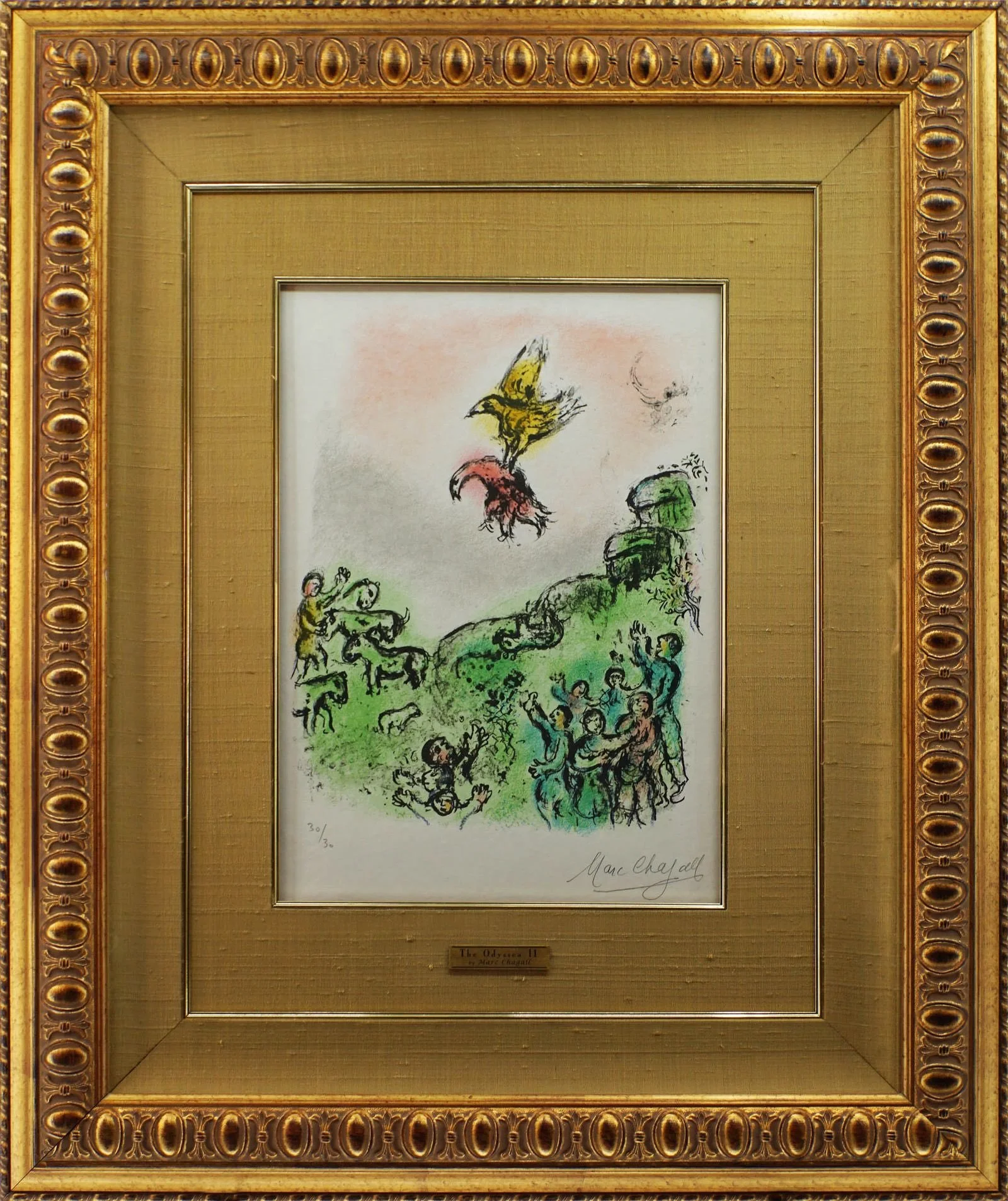TELEMACHUS RETURNS
Firmly resolved, Telemachus replied, "Menelaus, royal Atrides, captain of armies, I must go back to my own home at once. When I started out I left no one behind to guard my own possessions. God forbid, searching for my great father, I lose my life or lose some priceless treasure from my house!"
Art: Odyssey II - The Omen, The Goshawk, and the Dove by Marc Chagall (1975).
As Odysseus spends time with Eumaeus, Telemachus prepares to return home from Sparta. Father and son are on a collision course—it’s just a matter of time until they reunite. We experience the as a parallel journey that weaves the two narratives powerfully together, making us realize they were always two threads of the same master plan set in motion by Athena herself. Athena appears to Telemachus once more and urges him to sail quickly home. To do so, she warns, he must avoid the suitors’ ambush. Notice how she doesn’t clear the path for him but gives him the knowledge he needs to act wisely. This is how divine intervention often works in The Odyssey. The gods don’t enact miracles that eliminate hardship, but share guidance that calls for human courage and decision-making. As he returns, Telemachus takes on board a fugitive prophet: Theoclymenus. His presence signals and foreshadows the truth that is about to be revealed to Telemachus and reminds us that journeys are not only physical but spiritual as well. Unseen forces are at work shaping events. Back in Ithaca, Eumaeus share his own story with Odysseus and it puts his life in striking perspective. Once a prince, he was stolen away by traders, sold into slavery, and eventually brought to Ithaca. Odysseus sees the loyal swineherd in a new light, after experiencing long exile himself. And in the next books, he’ll pledge to restore Eumaeus—watch for it. The story also reinforces a key theme: exile doesn’t define a person, character does. Despite his suffering, Eumaeus remains faithful and just. Instead of being better, he remains steadfast. Book 15 invites us to think about many questions in our own lives. How do we recognize divine guidance in our own lives? What separates those who grow through hardship from those who are broken by it? How does the return home—whether literal or metaphorical—require both action and trust? Ultimately, this is a book of preparation. Odysseus waits. Telemachus is coming of age. The threads of fate draw tighter. Everything is lining up to push us across into Act 3 of the story, and what lies ahead now depends on the choices with which the characters will soon be confronted. As Telemachus lands in Ithaca and Theoclymenus spots the omen of the hawk and dove, Telemachus interprets it as a sign of good news for the house of Odysseus and all of his descendants. Talk about a cliffhanger!
-
Read the Odyssey online in the translation by Robert Fagles, or order the paperback.
Watch and learn about Books 15-16 of the Odyssey from Course Hero.
